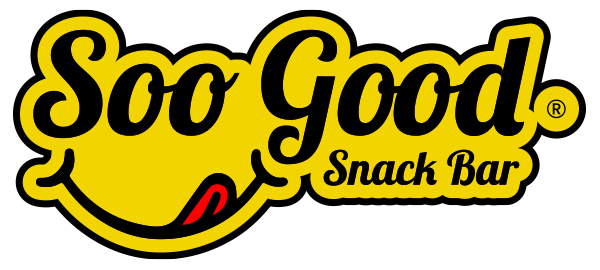Introduction
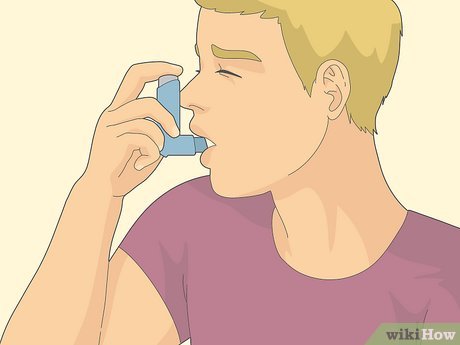
Ice cream is a beloved treat enjoyed by many, but for some individuals, it can lead to unexpected coughing episodes after consumption. This article aims to explore the possible reasons behind why ice cream makes some people cough. While coughing after eating ice cream is not a common occurrence for everyone, it may be a sign of an allergic reaction or sensitivity to certain ingredients. Understanding these causes can help individuals identify the underlying issue and seek appropriate management strategies. So, why does ice cream make some people cough? Let’s delve into the possible explanations.
Explanation Of Why Ice Cream Can Cause Coughing
Ice cream can cause coughing in some individuals due to various reasons. One possible explanation is that the cold temperature of the ice cream can irritate the nerves in the throat and airways, triggering a cough reflex. Additionally, certain ingredients in ice cream, such as lactose or milk proteins, can cause an allergic reaction in susceptible individuals, leading to coughing as a symptom. Another factor could be cold-induced asthma, where the sudden exposure to cold temperatures can constrict the airways and result in coughing. It is important to identify the underlying cause and seek appropriate management strategies to prevent and alleviate coughing episodes after consuming ice cream.
Overview Of Possible Allergic Reactions To Ice Cream
Possible allergic reactions to ice cream can vary depending on the individual and their specific allergies. Some common allergic reactions to ice cream include itching, hives, swelling of the lips or face, difficulty breathing, and coughing. These symptoms can be caused by ingredients such as lactose, milk proteins, nuts, or other additives present in ice cream. It is important for individuals with known food allergies to read labels carefully and avoid ice cream that contains their allergens. If severe or recurring symptoms occur, it is recommended to seek medical advice for proper diagnosis and management.
Lactose Intolerance
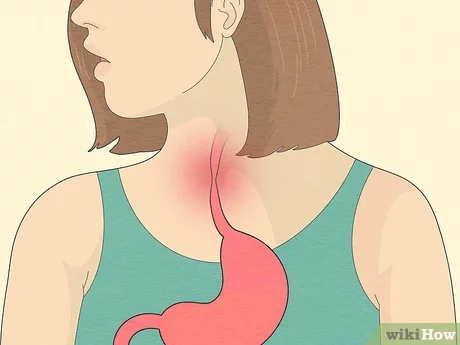
Lactose intolerance, a common cause of coughing after consuming ice cream, occurs when the body is unable to digest lactose, a sugar found in milk and other dairy products. This inability to digest lactose can lead to digestive symptoms such as bloating, diarrhea, and coughing. People with lactose intolerance lack the enzyme lactase, which is necessary for breaking down lactose. To manage lactose intolerance, individuals can try lactose-free ice cream alternatives or take lactase supplements before consuming dairy products.
Lactose Intolerance As A Potential Cause Of Coughing After Eating Ice Cream
Lactose intolerance, a condition in which the body is unable to digest lactose, can be a potential cause of coughing after consuming ice cream. Lactose, a sugar found in milk and dairy products, is broken down by the enzyme lactase. However, individuals with lactose intolerance lack sufficient lactase, leading to digestive symptoms such as bloating, diarrhea, and coughing. Managing lactose intolerance involves avoiding or minimizing the consumption of dairy products, including ice cream, or opting for lactose-free alternatives. Seeking medical advice can help in diagnosing lactose intolerance and developing a suitable dietary plan.
Symptoms And Management Of Lactose Intolerance
Symptoms of lactose intolerance can vary from mild to severe and typically occur within 30 minutes to two hours after consuming dairy products like ice cream. Common symptoms include bloating, gas, diarrhea, and abdominal pain. To manage lactose intolerance, individuals can try reducing the amount of lactose in their diet by avoiding or limiting dairy products. Lactase supplements are also available to help digest lactose. It is important to consult a healthcare professional for a proper diagnosis and personalized management plan. [9]
Milk Allergy
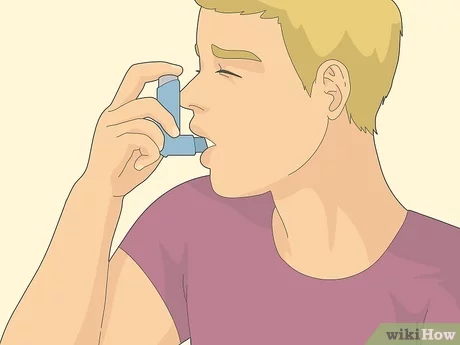
Milk allergy is another potential cause of coughing after consuming ice cream. It occurs when the immune system mistakenly identifies the proteins in milk as harmful substances. This triggers an allergic reaction, which can include coughing, wheezing, hives, and in severe cases, difficulty breathing. Diagnosis is typically done through skin prick tests or blood tests. Treatment involves avoiding all sources of milk and dairy products. Alternative milk options, such as soy or almond milk, can be used as substitutes. It is crucial to consult a healthcare professional for a proper diagnosis and personalized management plan. [12]
Milk Allergy And Its Connection To Coughing After Consuming Ice Cream
Milk allergy is another potential cause of coughing after consuming ice cream. It occurs when the immune system mistakenly identifies the proteins in milk as harmful substances. This triggers an allergic reaction, which can include coughing, wheezing, hives, and in severe cases, difficulty breathing. Diagnosis is typically done through skin prick tests or blood tests. Treatment involves avoiding all sources of milk and dairy products. Alternative milk options, such as soy or almond milk, can be used as substitutes. It is crucial to consult a healthcare professional for a proper diagnosis and personalized management plan.
Signs, Diagnosis, And Treatment Options For Milk Allergy
Signs of milk allergy can include coughing, wheezing, hives, vomiting, and other digestive problems. To diagnose milk allergy, a healthcare professional may conduct skin prick tests or blood tests to detect specific antibodies. Avoiding all sources of milk and dairy products is the main form of treatment for milk allergy. Alternative milk options like soy or almond milk can be used as substitutes. It is essential to consult a healthcare professional for a proper diagnosis and personalized management plan. [15] [16]
Cold Induced Asthma
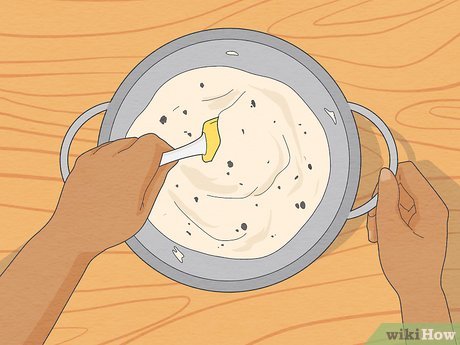
Explanation of how cold temperatures in ice cream can trigger coughing in individuals with asthma:
For individuals with asthma, exposure to cold temperatures can lead to a condition called cold-induced asthma. When cold air enters the airways, it can cause them to constrict, leading to symptoms such as coughing, wheezing, and shortness of breath. Eating ice cream, which is extremely cold, can trigger these symptoms in individuals with asthma. The cold temperature of the ice cream can irritate the airways and cause them to narrow, resulting in coughing. Proper management strategies for cold-induced asthma, such as avoiding cold foods or using a scarf to cover the mouth and nose in cold environments, can help reduce the likelihood of coughing episodes. [19]
Explanation Of How Cold Temperatures In Ice Cream Can Trigger Coughing In Individuals With Asthma
When individuals with asthma consume cold foods like ice cream, the cold temperatures can provoke a condition known as cold-induced asthma. The cold air entering the airways can cause them to constrict, leading to symptoms such as coughing, wheezing, and shortness of breath. The cold temperature of the ice cream irritates the airways, causing them to narrow and triggering coughing episodes. Managing cold-induced asthma involves avoiding cold foods and using techniques like covering the mouth and nose with a scarf in cold environments to minimize coughing episodes. [19]
Management Strategies For Cold-induced Asthma
When it comes to managing cold-induced asthma, it is important to take proactive steps to minimize symptoms. Here are some strategies to consider:
- Avoiding exposure to cold environments: Stay indoors during chilly weather or wrap a scarf around your mouth and nose when going outside.
- Choosing warm or room temperature foods: Opt for warm or room temperature foods and drinks instead of consuming cold items like ice cream.
- Using inhalers: Keep your prescribed inhaler on hand and use it as directed by your healthcare provider to help manage asthma symptoms.
- Seeking medical advice: Consult with your healthcare provider to discuss a personalized treatment plan and to explore different options for managing cold-induced asthma.
Remember, it is important to consult with a healthcare professional for proper diagnosis and tailored management strategies for your specific condition. [21]
Food Additives And Sensitivities
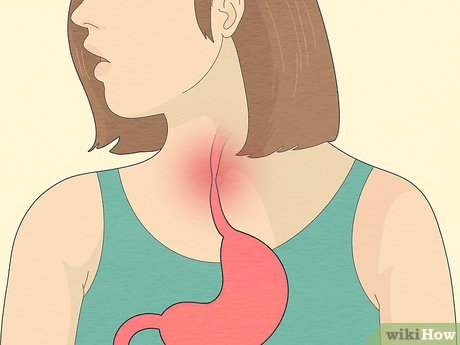
Food additives present in ice cream can also contribute to allergic reactions and subsequent coughing. Some common additives include artificial flavors, colors, and preservatives. These additives can trigger sensitivities or allergic reactions in certain individuals. For example, artificial colors like tartrazine (yellow dye) have been known to cause respiratory symptoms, including coughing, in sensitive individuals. It is important to read food labels and be aware of potential allergens or additives that may cause an allergic reaction. Seek medical advice if you suspect a food additive is causing your coughing episodes after consuming ice cream. [23]
Ingredients In Ice Cream That Can Cause An Allergic Reaction And Subsequent Coughing
Some ingredients in ice cream can cause allergic reactions and lead to coughing in certain individuals. Common food additives like artificial flavors, colors, and preservatives may trigger sensitivities or allergies. For instance, artificial colors such as tartrazine (yellow dye) have been known to induce respiratory symptoms, including coughing, in sensitive people. It is important to read food labels and be aware of potential allergens or additives that may cause an allergic reaction. Seeking medical advice is recommended if you suspect a food additive is causing coughing after consuming ice cream. [25]
Common Food Additives To Watch Out For And Their Potential Effects
There are several common food additives that individuals should be cautious of when consuming ice cream, as they may cause allergic reactions and subsequent coughing. Some additives to watch out for include artificial flavors, colors, and preservatives. Artificial colors, such as tartrazine (yellow dye), have been known to induce respiratory symptoms, including coughing, in sensitive individuals. It is important to read food labels and be aware of these additives to avoid potential allergic reactions. Seeking medical advice is recommended if coughing persists or is severe after consuming ice cream with these additives. [28]
Conclusion

In conclusion, there are several reasons why ice cream can cause coughing in individuals. It can be due to lactose intolerance, milk allergy, cold-induced asthma, or sensitivities to additives in ice cream. It is important to be aware of these potential allergic reactions and to manage them accordingly. Avoiding ice cream or opting for alternatives can help prevent coughing episodes. Seeking medical advice is recommended for severe or recurring symptoms.
Wrap-up Of The Possible Allergic Reactions To Ice Cream And Coughing
In conclusion, there are several possible allergic reactions to ice cream that can cause coughing. These include lactose intolerance, milk allergy, cold-induced asthma, and sensitivities to food additives. It is important to be aware of these potential reactions and manage them appropriately. Avoiding ice cream or opting for alternatives can help prevent coughing episodes. If symptoms persist or worsen, seeking medical advice is recommended for proper diagnosis and treatment.
Tips For Managing Or Avoiding Coughing Episodes After Eating Ice Cream
- Opt for alternatives: If you consistently experience coughing after eating ice cream, consider trying dairy-free or non-ice cream desserts to see if the symptoms improve.
- Read labels carefully: Be diligent in reading the labels of ice cream and other similar products to check for potential allergens or additives that may trigger coughing.
- Manage your portions: Control your portion size and avoid consuming large amounts of ice cream in one sitting.
- Stay hydrated: Drink water or non-dairy beverages alongside your ice cream to help soothe your throat and minimize coughing.
- Seek medical advice: If the coughing persists or worsens, consult a healthcare professional for proper diagnosis and personalized management strategies.
Importance Of Seeking Medical Advice For Severe Or Recurring Symptoms
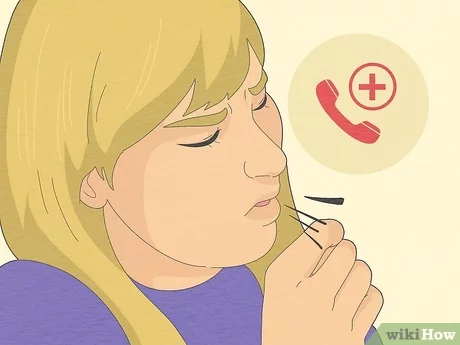
It is crucial to seek medical advice if you experience severe or recurring symptoms after eating ice cream. Persistent coughing episodes may be a sign of a more serious underlying condition, such as lactose intolerance, food allergies, or asthma. Only a healthcare professional can provide a proper diagnosis and develop personalized management strategies to address your specific symptoms. Ignoring these symptoms and self-medicating without proper guidance can lead to further complications. Therefore, it is essential to consult a healthcare professional for a thorough evaluation and appropriate treatment. [35][36]
Why Does Ice Cream Make Me Cough? – Frequently Asked Questions
Q: Why do I cough when I eat ice cream?
A: Coughing after consuming ice cream is a relatively common phenomenon. It occurs due to a specific reaction caused by the temperature and ingredients found in ice cream.
Q: What causes the coughing sensation when eating ice cream?
A: The extreme cold temperature of ice cream can stimulate the body’s Sensitive Nerve Endings (C-fibers) in the back of the throat, triggering a reflexive cough response. The sudden coldness can also irritate the throat and airways, leading to coughing.
Q: Are certain people more prone to ice cream-induced coughing?
A: Yes, some individuals may be more susceptible to this response. People with sensitive airways, such as those with asthma or allergies, may experience heightened coughing when consuming ice cream due to an increased sensitivity to cold air or temperature changes.
Q: Can the ingredients in ice cream contribute to coughing?
A: Certain ingredients found in ice cream, such as additives, artificial sweeteners, and dairy products, can cause an allergic reaction or sensitivity in some individuals. This can manifest as coughing, along with other symptoms like throat irritation, difficulty breathing, or a runny nose.
Q: Can coughing from ice cream consumption be prevented?
A: While complete prevention may not be possible, there are some strategies to minimize the likelihood of coughing. Gradually allow the ice cream to warm up in your mouth before swallowing. Opting for smaller spoonfuls and eating slowly can also help. Additionally, choosing warmer or softer ice cream varieties like gelato or sorbet may reduce the risk of coughing.
Q: Is ice cream-induced coughing a cause for concern?
A: In most cases, ice cream-induced coughing is harmless and temporary. However, if the coughing persists or is accompanied by severe discomfort, difficulty breathing, or other concerning symptoms, it is advisable to consult a healthcare professional to rule out any underlying conditions or allergies.
Q: Is there any medical treatment available for ice cream-induced coughing?
A: Generally, ice cream-induced coughing does not require medical treatment as it usually subsides on its own. However, for individuals with allergies or sensitivities to ice cream ingredients, avoiding those specific components of ice cream or seeking medical advice for suitable alternatives may be recommended.
Remember, if you have persistent or recurring symptoms when consuming ice cream or any other food, it is always best to consult a healthcare professional for an accurate diagnosis and appropriate medical advice.

Soo Good Snack Bar is an upscale snack shop located at 1309 Hermosa Ave. in Hermosa Beach, CA. This family-owned business is the newest addition to the community of Hermosa, and our goal is to create a fun and inviting place where families can enjoy delicious snack foods that fit the beach lifestyle. Check us out today and help yourself to happiness.
